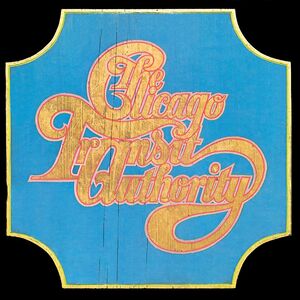
Chicago Transit Authority is the debut studio album by the American rock band Chicago, known at the time of release as Chicago Transit Authority. This double album was released in April 1969 and became a sleeper hit, reaching number 17 on the Billboard 200 by 1971. Chicago Transit Authority spawned several successful singles, including "Does Anybody Really Know What Time It Is?", "Questions 67 and 68" and "Beginnings". The album stayed on the Billboard chart for 171 weeks, beating the previous record for a rock album's longevity of 155 weeks and has been certified double platinum by the Recording Industry Association of America (RIAA). For this inaugural recording effort, the group was nominated for a Grammy Award for 1969 Best New Artist of the Year. The album was inducted into the Grammy Hall of Fame in 2014.

Chicago VI is the fifth studio album by American rock band Chicago and was released on June 25, 1973, by Columbia Records. It was the band's second in a string of five consecutive albums to make it to No. 1 in the US, was certified gold less than a month after its release, and has been certified two-times platinum since. It is the first album to feature percussionist Laudir de Oliveira, who would become a full-fledged member of the band for Chicago VIII. VI is the first studio album to feature the original band members on the cover before the death of leader and co-founder Terry Kath.

Chicago VII is the sixth studio album by American rock band Chicago. It was released on March 11, 1974 by Columbia Records. It is notable for being their first double album of new material since 1971's Chicago III and remains their final studio release in that format. It features session percussionist Laudir de Oliveira, who would become a full-fledged band member for the release of Chicago VIII the following year.

Chicago IX: Chicago's Greatest Hits is the first greatest hits album, and ninth album overall, by the American band Chicago and was released in 1975 by Columbia Records in both stereo and SQ quadraphonic versions.

Chicago X is the eighth studio album by the American rock band Chicago. It was recorded at Caribou Ranch and it was released by Columbia Records on June 14, 1976. The album made it to number three on the Billboard 200, and was certified gold by the Recording Industry Association of America (RIAA) on June 21, 1976, a week after its release. It was the band's first album to be certified platinum, on September 14, 1976, and has since been certified multi-platinum. In honor of the group's platinum album achievement, Columbia Records awarded the group a 25-pound bar of pure platinum, made by Cartier.
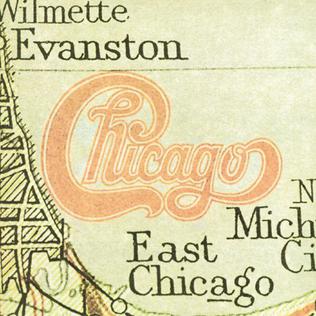
Chicago XI is the ninth studio album by the American rock band Chicago. It was released on September 12, 1977, through Columbia Records. It was both the last to feature guitarist and vocalist Terry Kath prior to his death in a gun accident just over four months later, and the last to be produced by longtime associate of the band James William Guercio.
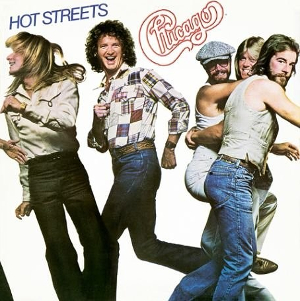
Hot Streets is the tenth studio album by the American rock band Chicago, released on October 2, 1978, by Columbia Records. This was the band's first album with all-new material released since their second that did not have a numbered title. It was also the first album not to feature original guitarist/vocalist Terry Kath, who died from an accidental self-inflicted gunshot wound in January 1978. He was replaced by Donnie Dacus on this album.
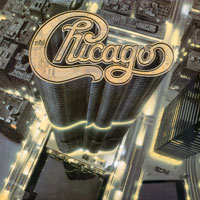
Chicago 13 is the eleventh studio album by American rock band Chicago, released on August 13, 1979, by Columbia Records. Chicago 13 was the band's final release featuring lead guitarist Donnie Dacus, who had followed the late founding member, guitarist Terry Kath. All band members contributed to the songwriting.
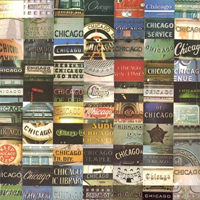
Greatest Hits, Volume II is the second greatest hits album by American rock band Chicago, released on November 23, 1981 by Columbia Records.

"(I've Been) Searchin' So Long" is a song written by James Pankow for the group Chicago and recorded for their album Chicago VII (1974). The first single released from that album, it reached number 9 on the U.S. Billboard Hot 100. It also hit number 8 on the Adult Contemporary chart. In Canada, the song peaked at number 5.

"Call on Me" is a song written by Lee Loughnane for the group Chicago and recorded for their album Chicago VII (1974). Peter Cetera sang lead vocals and the arrangement makes prominent use of conga drums played by Guille Garcia.

"Wishing You Were Here" is a song written by Peter Cetera for the group Chicago and recorded for their album Chicago VII (1974), with lead vocals by Terry Kath, while Cetera sang the song's bridge. The third single released from that album, it reached No. 11 on the U.S. Billboard Hot 100, No. 9 on the Cash Box Top 100, and hit No. 1 on the Easy Listening chart.
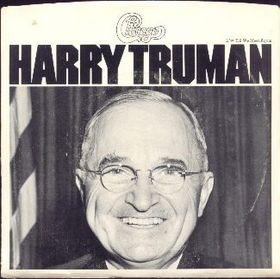
"Harry Truman" is a song written by Robert Lamm for the group Chicago and recorded for their album Chicago VIII (1975), with lead vocals by Lamm. The first single released from that album, it reached number 13 on the U.S. Billboard Hot 100. It also reached number 23 on the Adult Contemporary chart. In Canada, the song peaked at number 16.
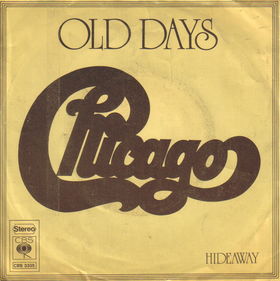
"Old Days" is a song written by James Pankow for the group Chicago and recorded for their album Chicago VIII (1975). It was the second single released from that album with lead vocals by Peter Cetera.

"Another Rainy Day in New York City" is a song written by Robert Lamm for the group Chicago and recorded for their album Chicago X (1976). Described as "the only typical Chicago cut on the album[:] upbeat and light with good blending of lead vocal by [Peter] Cetera", the track would be the album's lead single but was largely passed over for radio airplay in favor of the album cut "If You Leave Me Now". Rush-released as a single, "If You Leave Me Now" debuted on the Billboard Hot 100 of 14 August 1976 at No. 60 - on its way to No. 1 - and immediately eclipsed "Another Rainy Day..." which on the same chart fell to No. 46 from its No. 32 peak. "Another Rainy Day..." peaked at No. 2 on the Billboard Adult Contemporary chart.

"Baby, What a Big Surprise" is a ballad written by Chicago's then bassist/singer Peter Cetera, which appeared on their album Chicago XI (1977), with Cetera singing lead vocals. The first single released from the album reached number 4 on the US Billboard Hot 100 chart.
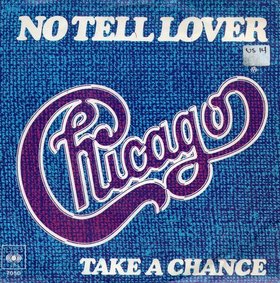
"No Tell Lover" is a song written by Lee Loughnane, Danny Seraphine, and Peter Cetera for the group Chicago and recorded for their album Hot Streets (1978), with Cetera and Donnie Dacus singing lead vocals. The second single released from that album, it reached No. 14 on the U.S. Billboard Hot 100 chart and No. 5 on the adult contemporary chart.

Chicago XXXIV: Live in '75 is a live album by the American band Chicago, their thirty-fourth album overall, recorded in 1975 and released in 2011. After releasing its eighth consecutive gold album in six years, Chicago embarked upon a stadium tour in 1975. The album includes selections from all of the group's albums through its then-current Chicago VIII.

"Brand New Love Affair" sometimes alternatively listed as "Brand New Love Affair (Parts I and II)", is a song written by James Pankow for the group Chicago and recorded for their album Chicago VIII. The song peaked at #61 on the charts. Guitarist Terry Kath sings the first half while bassist Peter Cetera sings the second half. Keyboardist Robert Lamm played the distinctive Fender Rhodes electric piano on the song—the intro particularly showcases its lush vibrato bell-like sound.

"Take Me Back to Chicago", originally released on the Chicago XI album, was a 1978 chart hit in the U.S. and Canada for the band Chicago. The song features Chaka Khan on backing vocals.




















